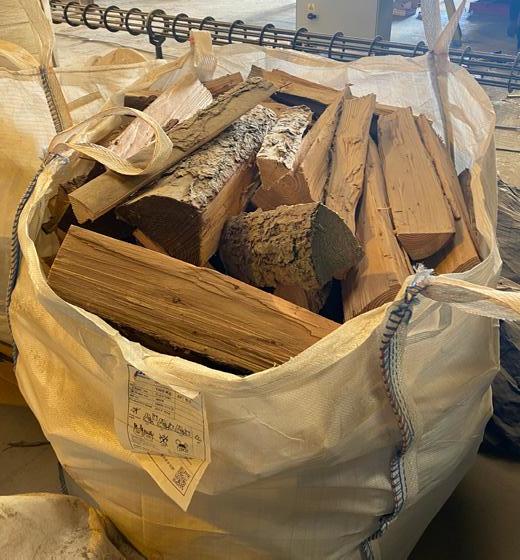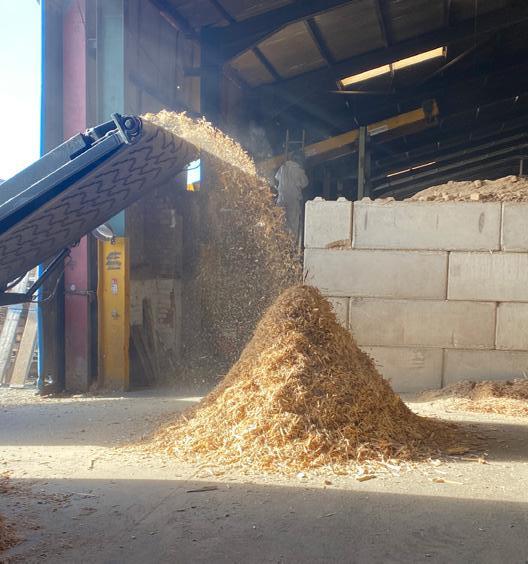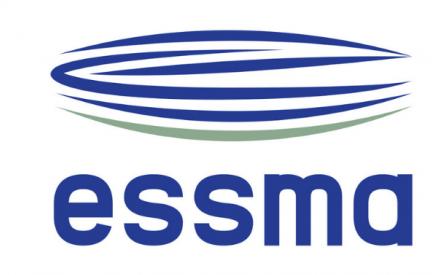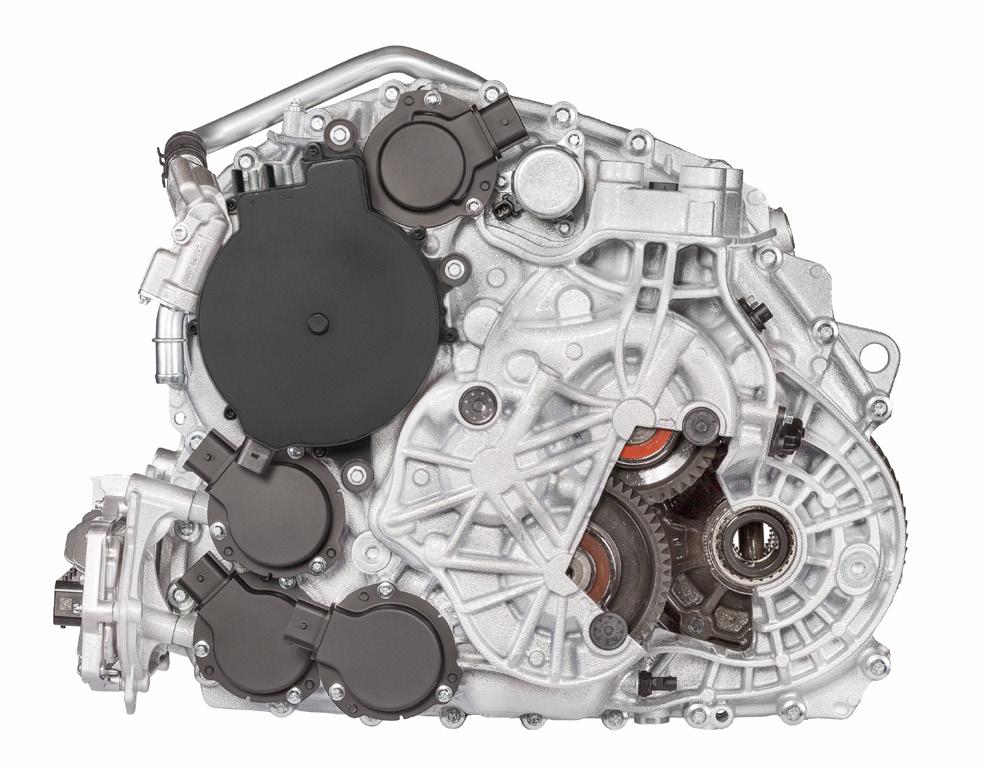
7 minute read
British Renewable Fuels
BRITISH RENEWABLE FUELS Keeping the home fires going
British businesses are being called upon to do their part to lighten the UK’s carbon footprint and bring the country to a new era of sustainability. To effectively achieve this goal, these businesses are scrutinising the operations and philosophies of their supply chain. This has provided the perfect opportunity for new businesses with a real understanding of the requirements, to establish themselves and make a real change for the better.
Founded in 2017 by managing director Paul Gibbon, British Renewable Fuels is a proudly British supplier of wooden based fire fuels to the UK market. Producing a range which includes kiln dried logs, briquettes, eco logs and natural firelighters as well as a range of renewable energy focussed consultancy services, the business plays an important role in keeping this fuel as green as possible.
HOW DO THEY DO IT? Far from being just chopped wood, the process of manufacturing briquettes and eco logs is one of patience and care and for British Renewable Fuels it is one that happens entirely within Britain.
First, the timber is purchased from UK forests and delivered to their yard. Depending on the size of the timber the wood is then cut and split into 8-10 inch slats before being placed in a kiln and dried for a period of 7-10 days. At this stage they test the moisture content with an aim to get it down to a reasonable level of 12-14% moisture.
The slats are then put through the shredding process where the wood is broken down into particles of 10mm sizes. It is also during this stage where the pulped wood can dry further.
From here the pulp is transferred to the briquette presses where it is hydraulically pressed into either long or round briquettes. These are then bagged and stacked on a pallet.
British Renewable Fuels works with a staff contingent of seven employees and are responsible for managing the process at all the key points. As a small business their production capacity is around 7-10 metric tons a day which accounts for roughly 1% of the country’s overall output.
“Quality counts for a great deal,” he says, “Like good timber, businesses should be given enough time to mature properly.”
Once the various products are packaged and prepared, be them briquettes, eco logs or fire starters they are palletised and shipped out to the various customers and retailers via outsourced fleet.
THE APPROACHING CHANGE Expected to come into force in February 2021, the upcoming government legislation will put restrictions on burning house coal or wet wood in stoves, open flames and wood burners. This stands to affect over two and a half million people in the UK who use such fuels either for warmth during the winter or as an important part of their business.

According to Paul, wood with a moisture factor of over twenty percent creates more contamination and smoke. This includes logs sold in DIY stores, garden centres and outside petrol-stations or wood stored outside instead of in a shed.
Wood-consuming stoves and coal fires are the biggest wellspring of the fine particulate issue (PM2.5), these are little particles of air contamination which can find their way into the body’s lungs and blood. Twenty eight times smaller than the width of human hair they can aggravate or even cause asthma, strokes, lung cancer and coronary illness.
As indicated by the UK government figures, the burning of these types of wet logs is responsible for 38% of the complete PM2.5 contamination in the UK which is more than street transport and industry joined!
So, in line with their goals to lower the country’s carbon footprint the government has started cinching down on this harmful producer of air contamination. This, however, puts a number of people and business owners in a difficult position.
“Wood is still a major source of heat for the British public,” Paul explains, “As well as playing an important role in many businesses ranging from restaurants, leather tanning and metal working, to boutique hospitality such as camping and glamping. These restrictions could impact them all.”
RENEWABLE ENERGY IN BRITAIN With a prominent background in renewable industry and a very clear view of the sector’s landscape, Paul began British Renewable Fuels to provide the products that businesses would need. Additionally, he also offers consultancy services to help them make the best of what renewable energy has to offer. “Mistral Energy is another business component of mine through which I consult on renewable energy projects around the UK,” he says, “We’ve built over sixty three wind turbines in Scotland, created biomass generators and consulted on local businesses on how they can increase their own sustainability.”
Paul goes on to explain that being a small business they are incredibly flexible with meeting their customer’s needs. This relationship building has allowed Paul the opportunity to help their clients drastically change their carbon footprint. Not only by using the most sustainable wooden fuel created under the best conditions but also to become sustainable with their energy.
“Many farms may have the land available to erect a wind turbine or the roof space on a barn or farmhouse for solar panels,” he says, “This gives them a great opportunity to make themselves entirely sustainable and self-efficient.”
RENEWABLE RECEPTION Paul has been involved with some very interesting renewable endeavours, including megawatt projects in East Anglia in England and micro generation projects. He has noticed that there is a marked difference in reception to renewable energy depending on where you go in the UK.



“Scotland’s natural stance for renewable projects is to accept and not reject. So they are very advanced in things like wind farms, on and offshore,” he says, “But in England these same projects are met with scepticism and an initial refusal. Renewable energy and sustainability are keywords at the moment, but you can see the real dedication in how governments act.”
Fortunately, people and businesses are free and able to make use of the renewable energy resources themselves. And, standing in their corner, British Renewable Fuels has already proved that even during crisis like Covid 19, they are up for the challenge and keeping their customers supplied.
“We did not slow down production during Lockdown,” he explains, “Our yard is large enough that there is roughly five metres if not more between each of our staff. This was fortunate because during spring and summer time we process and stockpile so that we have the supply for the winter months where the requirement often doubles. Also, during the Lockdown period a lot of our clients still required their fuel for their home heating or their small businesses.”
WHAT DOES RENEWABLE MEAN TO YOUR INDUSTRY? As mentioned earlier, fire still plays a crucial role in many businesses. As an example, in hospitality, glamping continues to grow not only in popularity but diversity and there is definite need for more economic and sustainable means of fuelling fires.
Boutique hospitality, like glamping, relies on offering all the benefits of camping while matching these with the luxuries of a hotel room. What says camping more than an open fire?
Open fires, for cooking, for warmth and ambiance are such a quintessential part of camping and being

in the outdoors that the majority of sites offer firepits, wood burners, barbecues and wood fired hottubs as part of their packages.
And, Post Lockdown, the glamping industry has seen a massive worldwide thrust as these destinations also offer privacy and so social distancing is easily achieved. The industry is set to continue to grow with more sites opening up but irrespective of whether the glamping sites consists of dozens of tents, domes and wigwams or just a single tipi, they are all going to be subject to the new law regarding what sort of wood is burnt.
“Industries need to take these changes seriously,” Paul says, “And understand that laws like this open more doors than they close. Glamping site owners may not be aware of what their land is capable of producing in terms of sustainable, economic energy which is very trendy in hospitality and travel at the moment.”
2020/2021 Paul reveals that he aims to reach an output level of 5000 tons this coming winter. Once this has been achieved, they will know that they can aim for 10,000 tons next year. This will mean a doubling of staff and production to meet and exceed this target.
“We have an important role to play, so we are building our business one briquette at a time,” he says.











